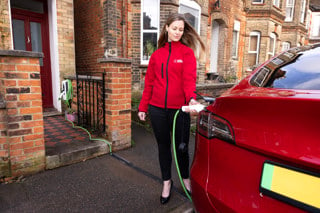Garages and testing stations will be required to check for a diesel particulate filter (DPF) in the inspection of the exhaust system as part of the MOT test (or annual test for heavy vehicles) from February 2014.
The vehicle will automatically fail the MOT test if the filter had been fitted as standard but is found to be no longer present.
The filter works by trapping solid particulate matter from exhaust gases. This type of filter has been in use for more than 20 years and helps meet European emission standards, improving air quality and health standards.
Some firms offer services to remove the filter, claiming it will boost consumption. But it is an offence to drive a vehicle that has been modified this way, as it will no longer meet the emissions standards the car achieved when it was approved for sale in the UK.
Roads Minister Robert Goodwill said: "I am very concerned that vehicles are being modified in a way that is clearly detrimental to people's health and undoes the hard work car manufacturers have taken to improve emissions standards.
"It has become apparent the Government had to intervene to clarify the position on particulate filter removal given the unacceptable negative impact on air quality.
"This change to the MOT tests makes it clear - if you have this filter removed from your car it will fail the test."
The filters need to be ‘regenerated' regularly through burning the soot to gas at a very high temperature, leaving behind a residue.
If not carried out properly, regeneration can lead to a build up of soot, which can affect performance.
This has led to some diesel vehicle owners opting to remove the filter, which makes their car illegal for road use.



















Simon - 06/12/2013 13:22
Vehicles are having the DPF's removed for one reason. People are driving diesel's when doing very short journeys which in turn will block the DPF and in the long term a new one required. The leasing industry is at fault by not moving with the times. There are many businesses out there with Diesel only policies and drivers that just follow the trend. Rules should be changed to allow petrol vehicles for any business and incentive the drivers to do so. Euro6 standards will increase vehicle pricing by around £1000 which will reduce the difference in running costs between petrol and diesel. The real problem is the retail market where people are not doing the 20k per annum and are now being forced to get a diesel since there are no petrol vehicles out there. With the high costs of repairing a diesel vehicle (DPF, flywheel) there is a risk that 7 year old vehicles will not be worth repairing which in turn will have a negative impact on the value of the new vehicles. The diesel market will burst due to all these measures to keep them clean, it won’t happen for another 2 to 3 years, but it will.